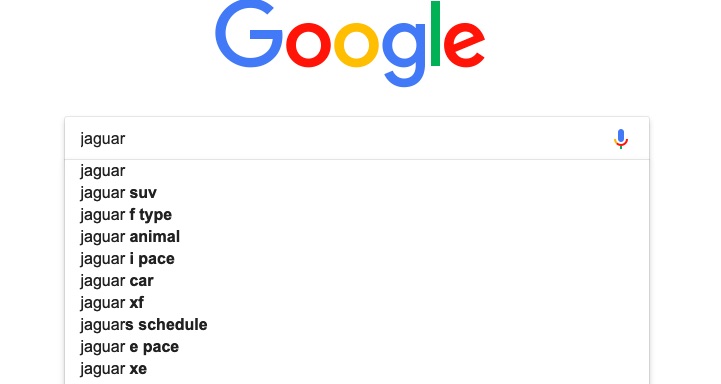
A searcher on Google who types in “jaguar” could be looking for info on an animal, a car, an NFL team, or a video game.
Google attempts to understand the intent of a searcher’s query. The company recognizes the burden of providing the best results, even if the query is vague.
For example, if someone types in “jaguar,” Google has to figure out what that searcher wants. Is she looking for the NFL team’s website? Or information on the car? Is she looking to buy an old Atari Jaguar game system?
This may seem an impossible task of mind reading, but Google is attempting to tackle it.
SEO without Keywords?
A traditional practice of search engine optimization is to target keywords. But search has matured. These days, pages can perform well in search results without many — or any — query keywords.
In recent years, Google incorporated complex search models into its algorithms to help understand intent, to provide better results for each user. Better results keep users loyal to Google, which means more ads get clicked. Thus Google will likely continue to improve its comprehension level.
To be sure, keywords are important. But SEO in 2019 is more than having popular words in your copy. It requires copy that matches the query intent. You need both.
Google’s understanding of query intent leads to compelling search results, especially in terms of personalization. For example, I play the guitar. I love classic rock. Google seems to know this. When I search “what does Garcia play?” I’m served articles about the Grateful Dead’s Jerry Garcia, focusing on his guitars. But if I perform the search with an incognito tab, the query pulls up results for Kirsten Vangsness, the actress who plays Penelope Garcia in the television show “Criminal Minds.”
So, Google knew Jerry Garcia is part of my universe. And it knew he played guitar. It also knew I wasn’t in a purchasing state of mind — I was looking for information.
Ecommerce
Google’s attempt to understand intent affects ecommerce SEO. In the old days, we could target terms such as “vitamins,” knowing retailers would dominate the results. But it’s different today.
A study of the results for “vitamins” shows that Google ranks different pages — a mix of retailers and non-retailers — depending on the audience. Google’s understanding of the intent of this keyword query has changed.
In other words, ecommerce merchants should consider query intent in SEO strategies.
We must also recognize that ecommerce funnels have expanded in recent years due to savvier consumers. Google’s Zero Moment of Truth concept suggests buyers are researching much more than they used to. This increases the volume of long-tail queries — such as “best vitamins for memory” — more descriptive, less searched, but with a higher likelihood for conversion.
Once you understand the type of information your shoppers are seeking before they purchase, you can plan campaigns accordingly. If my prospect tends to visit five different web pages for information before making a purchase, I don’t want to be just the last visit. I want to be a few of those prior visits. I want my brand to be in the searcher’s mind throughout his journey. It’s traditional marketing and will likely boost conversions.
Moreover, I cannot assume that Google will routinely serve my ecommerce pages. I should review the search results to confirm, and look for opportunities. Many ecommerce sites don’t take advantage of informational copy — those retailers are at a big disadvantage.





